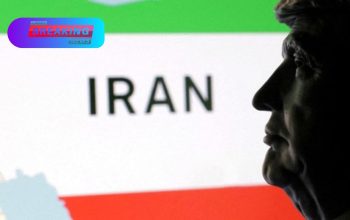
Amnesty International has accused Israel of committing genocide in Gaza, citing “sufficient evidence.” The organization argues that Israel’s military actions during the ongoing conflict could amount to genocide under international law. This claim has sparked debates globally, with many questioning the severity of Israel’s actions in Gaza.
Amnesty’s report focuses on Israel’s military operations, suggesting that they target civilians and critical infrastructure. The report claims that these actions may be part of a larger strategy aimed at the destruction of Gaza’s population. These accusations are the latest in a series of human rights concerns raised about Israel’s treatment of Palestinians.
The Evidence: How Amnesty Supports Its Accusation
Amnesty International gathered a range of evidence to support its accusations. This includes satellite images, eyewitness testimonies, and interviews. The organization highlights incidents where Israel reportedly targeted civilian areas, hospitals, and humanitarian aid facilities. Amnesty contends that these actions, particularly the widespread destruction of homes and essential services, point to the intent to harm or even eliminate parts of Gaza’s population.
Amnesty argues that such acts align with the legal definition of genocide. Under international law, genocide involves actions aimed at destroying, in whole or in part, a national, ethnical, or religious group. According to Amnesty, the evidence shows Israel may have intentionally carried out these actions against the Palestinian people in Gaza.
The Global Response to the Allegations
Israel has strongly rejected Amnesty’s allegations. Israeli officials insist that their military actions are defensive, targeting Hamas militants and their infrastructure, not civilians. They argue that military operations are necessary for self-defense against Hamas rocket attacks on Israeli cities.
Nevertheless, human rights organizations have called for further investigation into the claims. Amnesty has urged international authorities to hold those responsible accountable. Many international leaders and organizations have echoed this call, emphasizing the need for transparency and accountability in the ongoing conflict.
The Legal Complexity of Genocide Accusations
Genocide is a highly complex and serious legal accusation. International law requires clear proof of intent, meaning that the perpetrators must have acted with the goal of destroying a specific group. To prove genocide, investigators must show that the actions were part of a broader, intentional effort to annihilate that group.
Although Amnesty believes there is enough evidence, others argue that the charge of genocide is often misused in conflicts. Legal experts highlight the difficulty in proving intent in wartime situations, particularly when military actions are aimed at neutralizing enemy forces rather than targeting a civilian population.
The Humanitarian Impact: A Deepening Crisis
The humanitarian crisis in Gaza continues to worsen. Thousands of civilians have died, and many more have been injured. The destruction of homes, schools, and hospitals has left many without access to basic services. Shortages of food, water, and medical supplies have further strained the situation.
In addition, the ongoing violence has displaced millions of people, forcing families to flee their homes in search of safety. The situation has reached a point where basic human rights are at risk. Amnesty’s report stresses that Israel’s actions have directly contributed to the suffering of civilians, especially vulnerable groups like children and the elderly.
The Call for Independent Investigations
Amnesty International has called for an independent investigation into Israel’s actions in Gaza. They urge international bodies such as the United Nations and the International Criminal Court (ICC) to examine whether these actions constitute genocide or war crimes. An independent probe could bring clarity to the situation and help determine whether Israel should face legal consequences.
While it remains unclear whether such an investigation will happen, the call for accountability grows louder. Many believe that independent investigations are vital to ensure that those responsible for violations of international law are held accountable.
The Path to Justice: What Comes Next?
Amnesty’s accusation of genocide marks a turning point in the ongoing conflict between Israel and Gaza. As the international community responds to the report, the pressure for accountability continues to rise. The next steps will determine whether Israel faces a legal reckoning for its actions in Gaza.
The global community must now decide how to address the serious allegations. Will Israel face consequences for its military actions, or will it continue to be shielded by political alliances? Only time will tell whether justice will be served, but the situation demands urgent attention.
Conclusion: Seeking Justice and Peace
Amnesty International’s claim that Israel is committing genocide in Gaza is a significant development in the ongoing conflict. The evidence presented by Amnesty raises important questions about the morality and legality of Israel’s military operations. As the situation unfolds, the international community must decide whether to take meaningful action to address the crisis.
A fair and transparent investigation is essential to determine whether the accusations of genocide are valid. Meanwhile, the people of Gaza continue to suffer, and the international community must act to prevent further harm. Accountability, justice, and peace are the goals that should guide the world’s response to this crisis.


